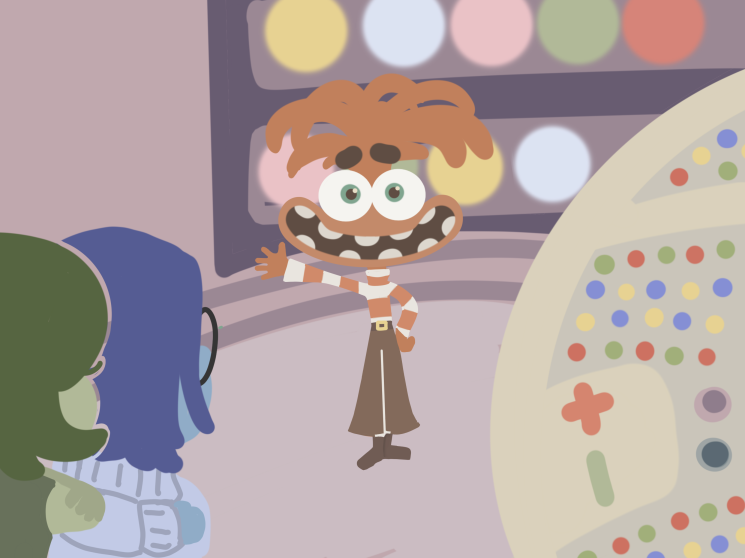
By Ashley Trinh
Disclaimer: This opinion article contains spoilers for the move Inside Out 2.
Anxiety is a distressful emotion that humans experience recurrently throughout their lives. It can be a healthy emotion to experience in moderation. Anxiety helps us discern from danger and encourages us to live cautiously. However, experiencing an excessive amount of anxiety is psychologically unhealthy and can ultimately ruin someone’s quality of life.
Consequently, when Anxiety is introduced at the beginning of the film, she is portrayed as likable and unassuming. Her intentions for Riley are only pure, as she strives to build Riley into a person that is well-adapted to her environment, to ensure her the best experience in high school possible.
At the start, Anxiety uses methods to help Riley adjust and grow to be more aware of her surroundings. As Riley spends time with the hockey team, she begins to grow more socially aware of how her behavior influences other people’s perceptions of her.
For example, Joy is controlling Riley’s emotions when she is continuously goofing around in the girls’ locker room with her friends. Riley’s coach notices and makes the whole team skate lines as punishment. As a result, Riley’s teammates shame and temporarily resent her, while the upperclassmen talk down on her during their break.
Joy’s incapability to help Riley adapt to professional situations makes her unlikable to her teammates. Anxiety realizes Joy is unsuitable for Riley at this instant, so she pushes Joy aside to fix the problem.
Anxiety progressively becomes more controlling throughout the movie. She overtakes Joy in dictating Riley’s emotions and thought process, in addition to and kicking out the primary emotions from Riley’s control center.
Anxiety’s actions cause Riley to lose her sense of self, suppress her other emotions and break down multiple times throughout the film.
Moreover, Riley discovers that the hockey camp — directed by the team’s head coach — helps determine her position on the team. As this thought looms over Riley’s consciousness, she starts to hyper-fixate on her idea of success and her imperfections.
Riley pushes herself mentally and physically in an attempt to impress the coach and the upperclassmen. Unfortunately, this causes Riley to sacrifice some of her core values and personality traits in the process.
Furthermore, Anxiety is unaware of the harm that she is inflicting on Riley’s mental health and sense of self. She speaks of her plan with necessity, consistently stating what she thinks Riley needs so that Riley can achieve what she wants.
In a scene where Riley hangs out with the upperclassmen on the team, she pretends to dislike and ridicule a boy band that she is a fan of, to humor and relate to her older peers. As a result, Riley’s friends grow resentful towards her as she neglects and embarrasses them to appear “cool” enough to the upperclassmen.
Although Anxiety’s intentions are pure, the results of her actions manifest destructively — this makes Anxiety such a compelling villain. Her motives make her likable, and her concerns are relatable to the audience’s experiences, yet the tyrannic execution of her plan frustrates the viewers.
Thus, when Anxiety realizes the self-destructive nature of her actions, she loses her composure, creating a storm in Riley’s brain as she frantically tries to fix the situation at hand.
As I sat in theaters to watch Inside Out 2, I found myself thinking, I hate Anxiety, which felt so coincidental because that is the exact same way I feel about anxiety, the emotion.
The writers were able to create a protagonist that simultaneously personified anxiety and paralleled the audience’s feelings towards the emotion itself — a clear indicator that anxiety was exceptionally portrayed.
It is then that the audience sees the immense stress and pressure that Anxiety feels to push Riley as close to perfection as possible, solidifying the love-hate relationship that the audience shares with Anxiety.
The audience relates to Anxiety’s persistent need to polish and perfect Riley’s character; however, they despise Anxiety for the mental distress that she has caused Riley and her loved ones. Anxiety’s relatability is what makes her such a multifaceted character, while her perfectionism is what makes her such a complex protagonist.





